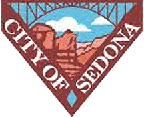 Sedona AZ (August 26, 2016) – When people use the term return on investment, they’re usually talking about money. They look for a good ROI when they invest in the stock market, for example. And because both the investment and the return are purely financial, ROI is very easy to calculate. ROI comes up in City Council discussions, too, but with a difference. For example, we might start to calculate the return on our destination marketing investment by adding up the taxes received from new tourist spending. But there are negative returns as well, like the cost of increasing police and other city services to deal with those extra tourists. Those are real financial costs that should be part of our ROI, but they aren’t as easy to calculate.
Sedona AZ (August 26, 2016) – When people use the term return on investment, they’re usually talking about money. They look for a good ROI when they invest in the stock market, for example. And because both the investment and the return are purely financial, ROI is very easy to calculate. ROI comes up in City Council discussions, too, but with a difference. For example, we might start to calculate the return on our destination marketing investment by adding up the taxes received from new tourist spending. But there are negative returns as well, like the cost of increasing police and other city services to deal with those extra tourists. Those are real financial costs that should be part of our ROI, but they aren’t as easy to calculate.
And it gets harder. How do we account for the cost of returns that aren’t financial at all? Like the decrease in quality of life for residents from increased tourism: More congestion on our roads, damage to our trails, noise from helicopter tours and ATVs, etc. Somehow we have to count those things in our ROI calculation, too. And because they can’t be described in dollars and cents, citizen opinions will vary widely on how costly those returns are.
This difficulty in calculating ROI is one reason why managing a city is different from managing a business. Most corporations have a primary goal of a positive, purely financial ROI for their shareholders. But a city is expected to return to its citizens things that are not financial, like safety, equal opportunity, and quality of life. The city’s job is to continually turn monetary income [our taxes] into intangible benefits. That makes most ROI calculations of city decisions highly subjective. It’s no wonder there are so many conflicting opinions on how much or little the city should spend – and on what.
Please understand: I’m not complaining about how hard it is for me, as a city councilman, to calculate the true ROI of policy decisions. Quite the opposite, in fact. I’m grateful for and highly motivated by the challenge to research and weigh all those intangible potential returns and figure out the best decision for all Sedonans. And I’m inspired always by the many volunteers in our city who invest their precious time and considerable skills and talents to help achieve those same intangible returns for our community. That’s an ROI that can never be measured in dollars and cents.
I’m reminded of something Robert Kennedy said at the University of Kansas on March 18, 1968, less than three months before he was assassinated. It’s a long quotation, and it’s about calculating gross national product, rather than ROI. But I think you’ll see its relevance to how we count the value of things, and I hope you will get a high return of your invested time to read it:
“Too much and for too long, we seemed to have surrendered personal excellence and community values in the mere accumulation of material things. Our gross national product, now, is over $800 billion dollars a year, but that gross national product – if we judge the United States of America by that – that gross national product counts air pollution and cigarette advertising, and ambulances to clear our highways of carnage. It counts special locks for our doors and the jails for the people who break them. It counts the destruction of the redwood and the loss of our natural wonder in chaotic sprawl. It counts napalm and counts nuclear warheads and armored cars for the police to fight the riots in our cities. It counts Whitman’s rifle and Speck’s knife, and the television programs which glorify violence in order to sell toys to our children. Yet the gross national product does not allow for the health of our children, the quality of their education or the joy of their play. It does not include the beauty of our poetry or the strength of our marriages, the intelligence of our public debate or the integrity of our public officials. It measures neither our wit nor our courage, neither our wisdom nor our learning, neither our compassion nor our devotion to our country, it measures everything in short, except that which makes life worthwhile. And it can tell us everything about America except why we are proud that we are Americans.”
The opinions expressed above are mine alone and do not necessarily represent the views of the Sedona City Council or any other organization.




